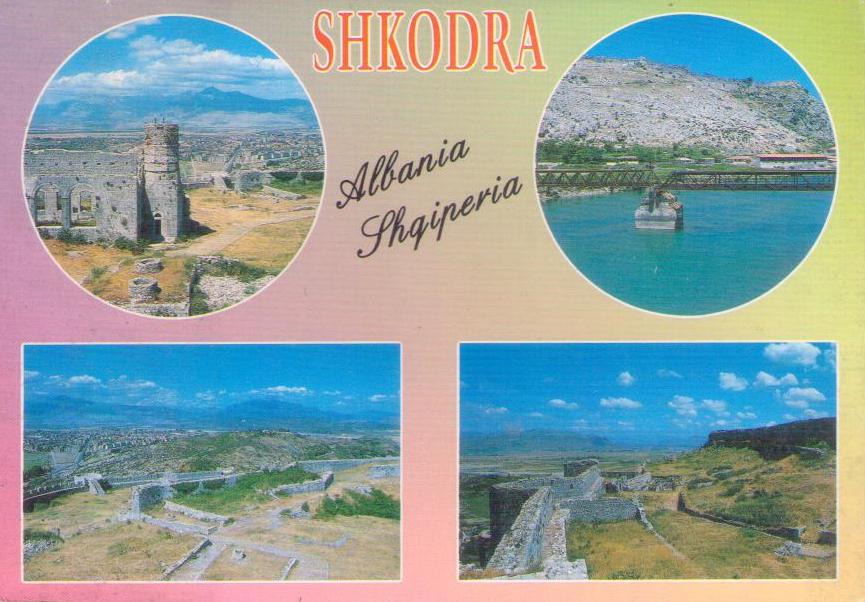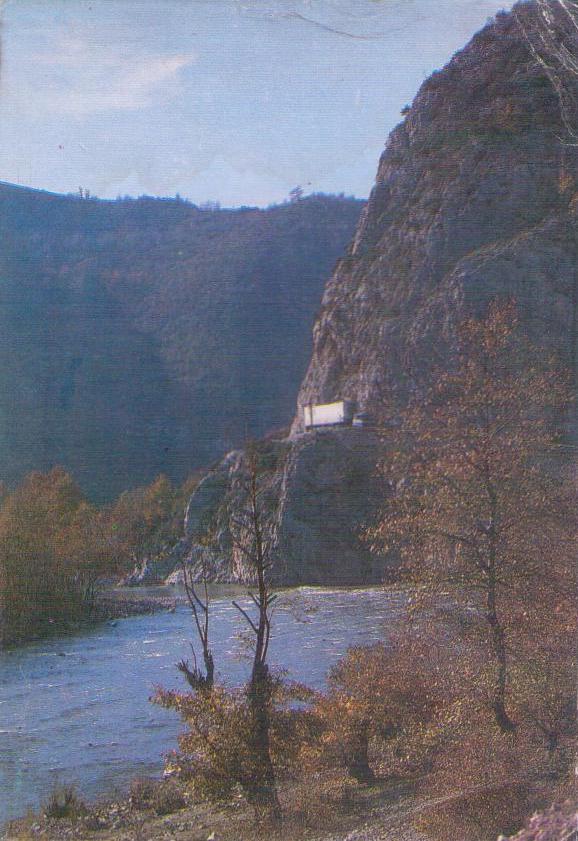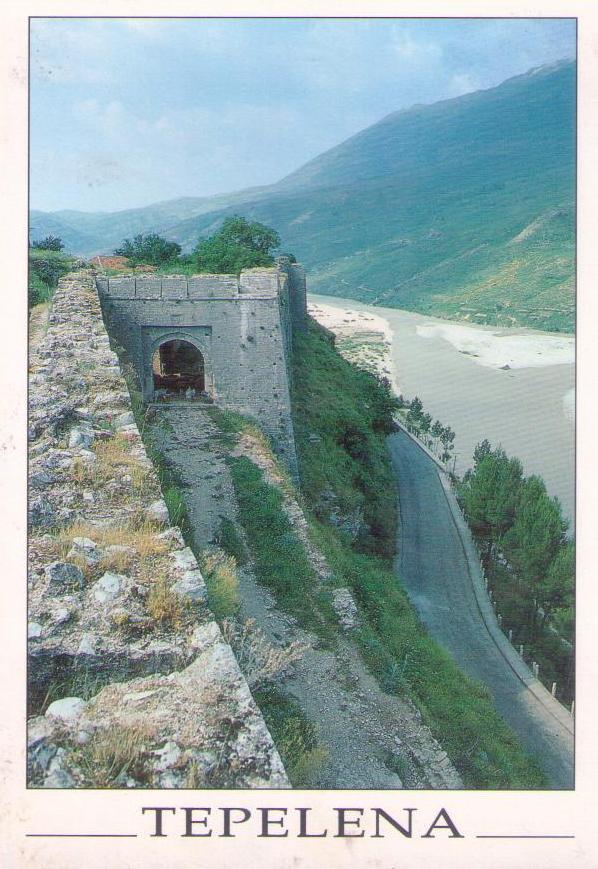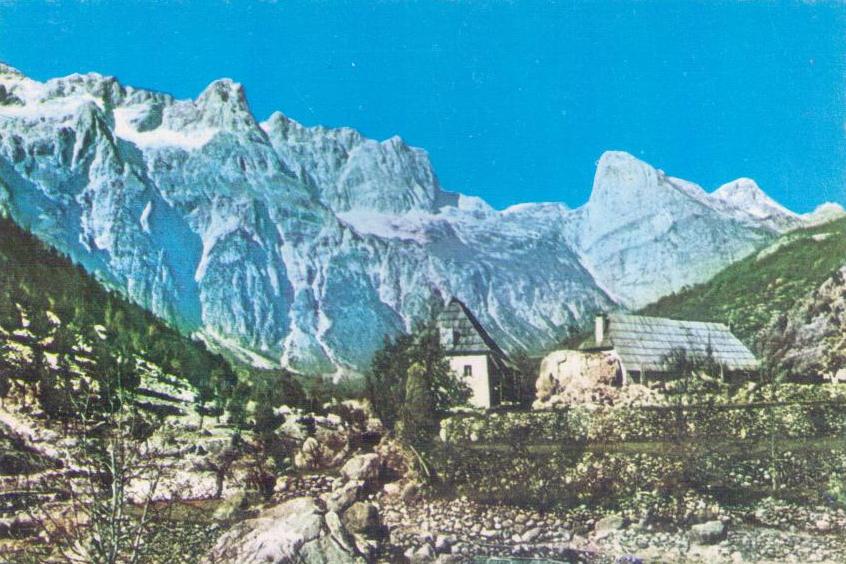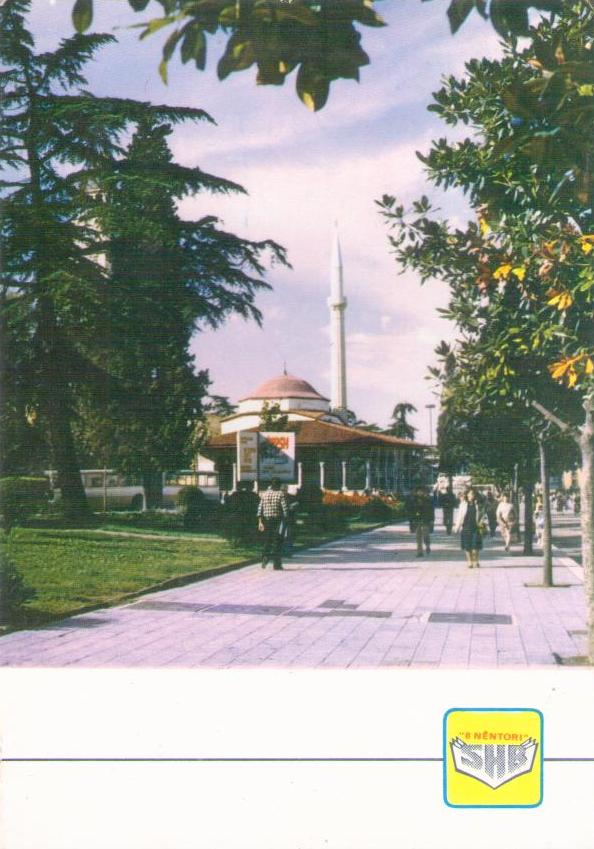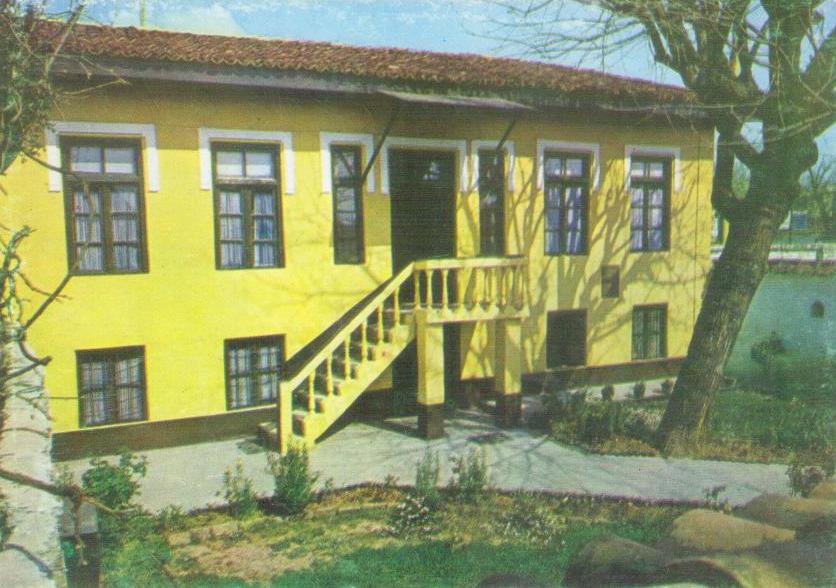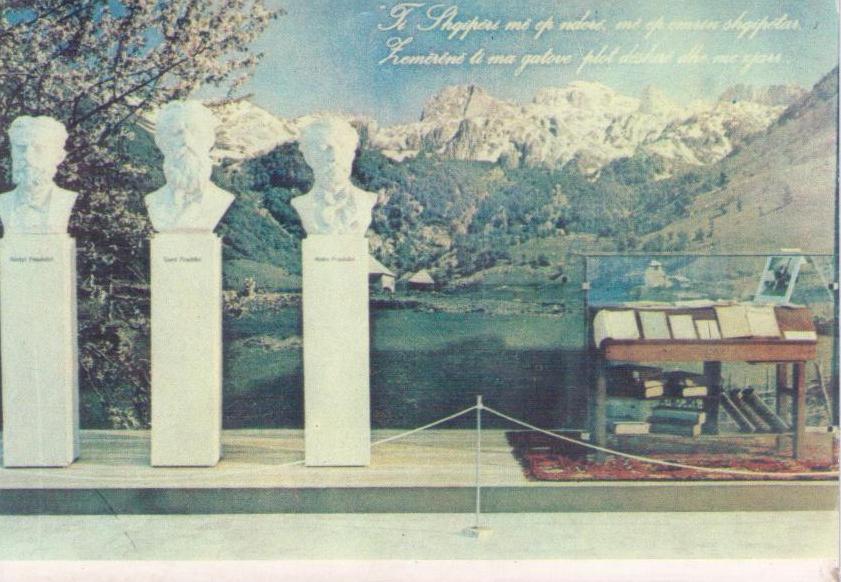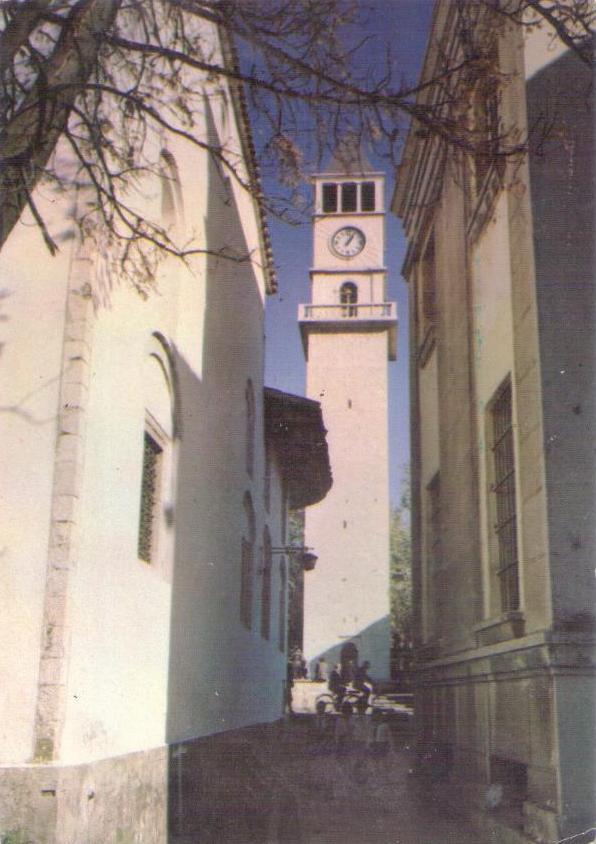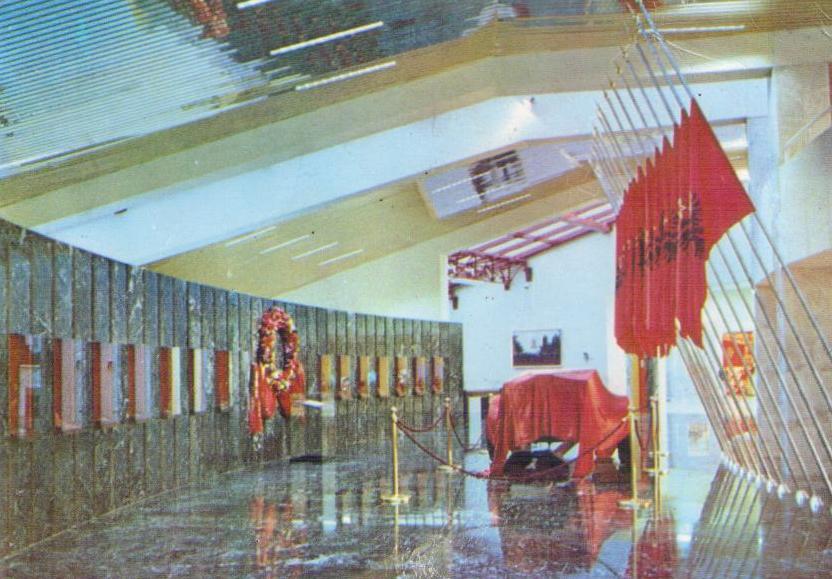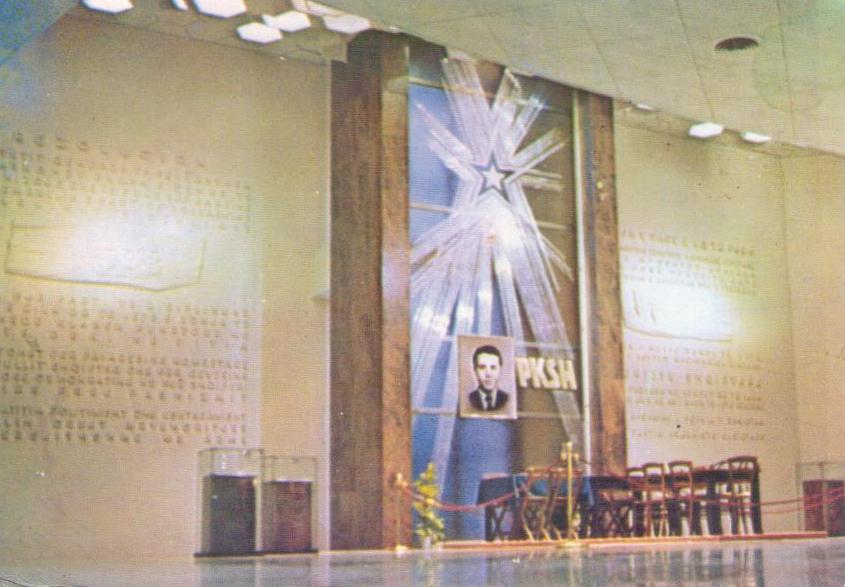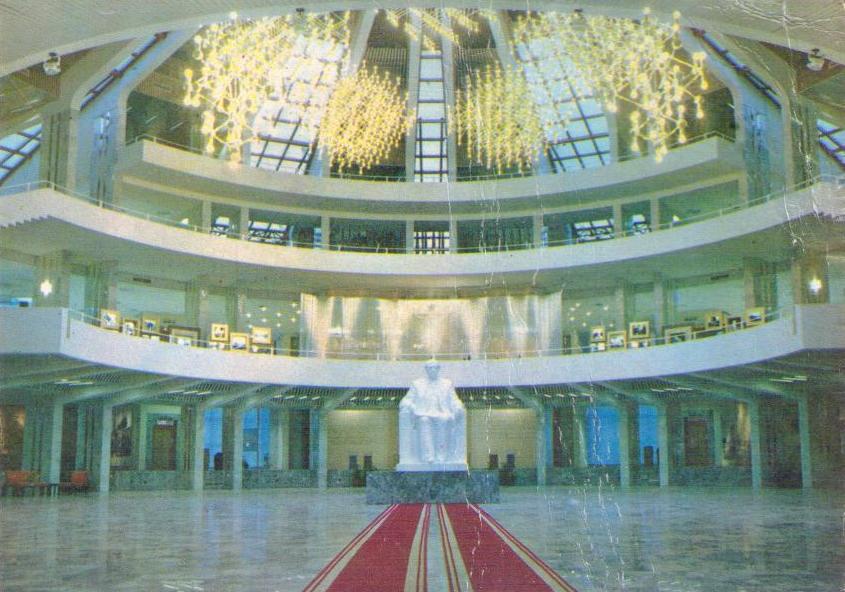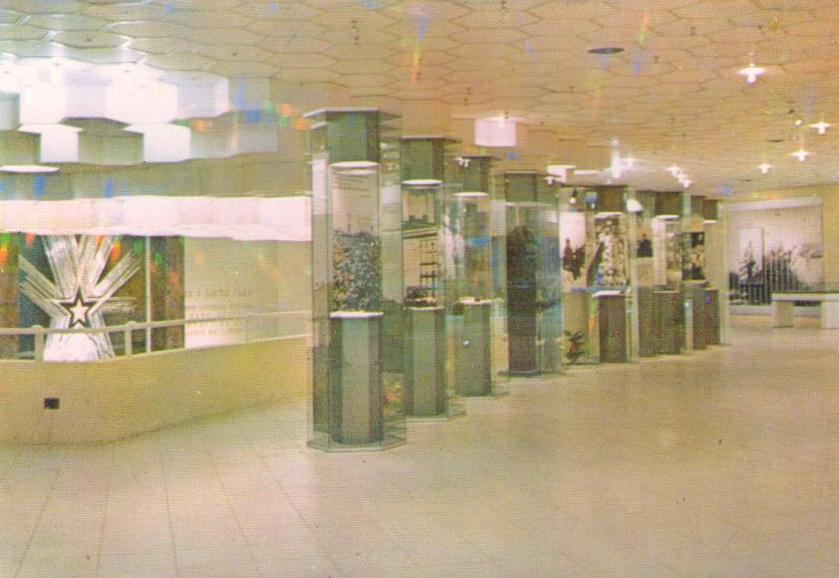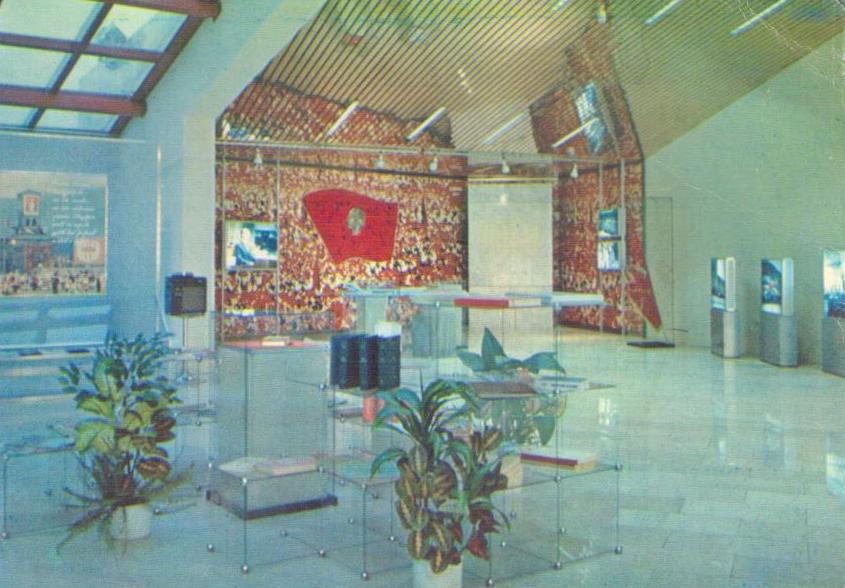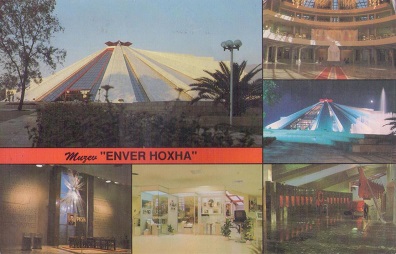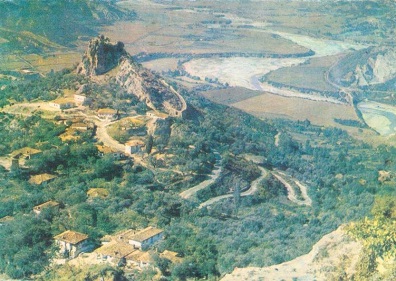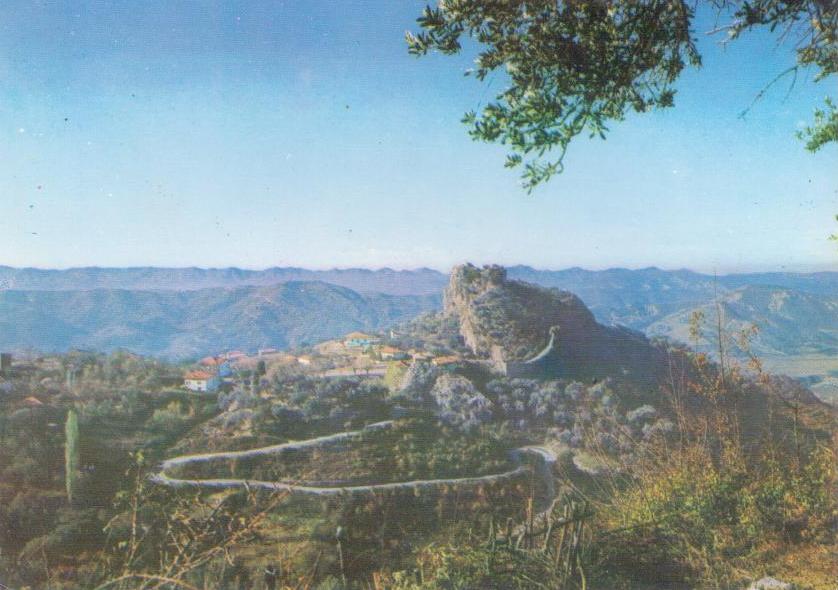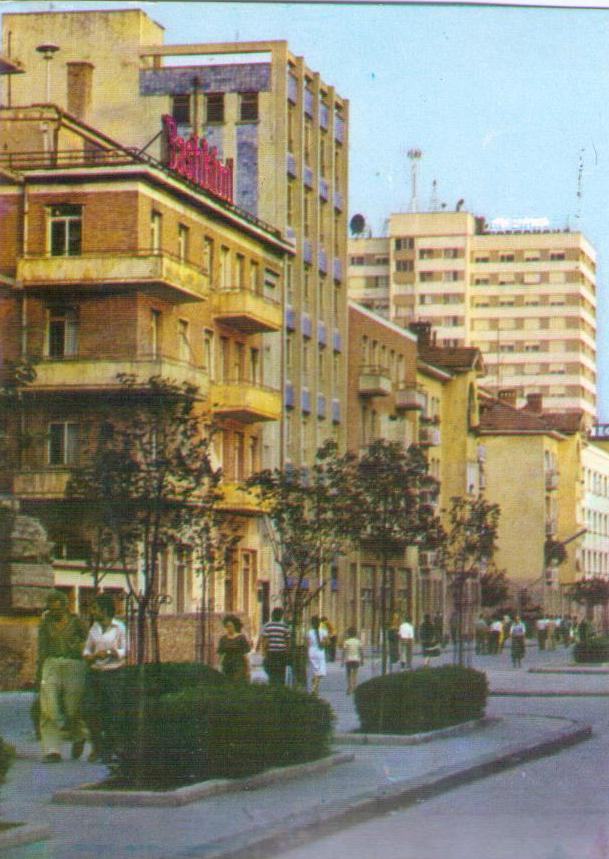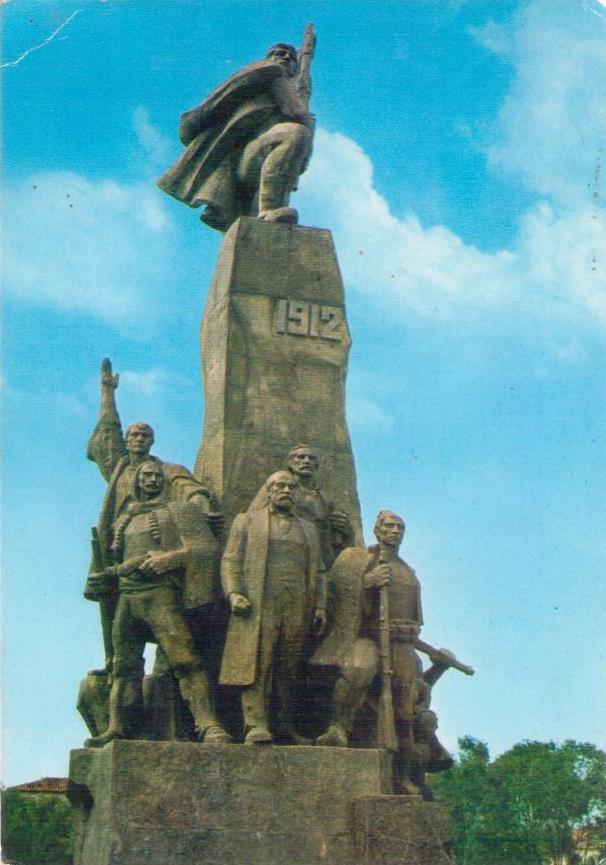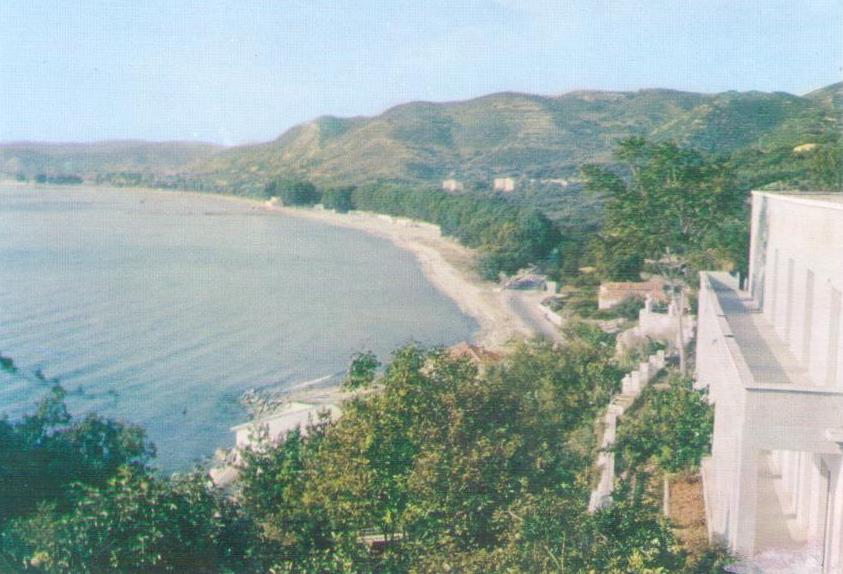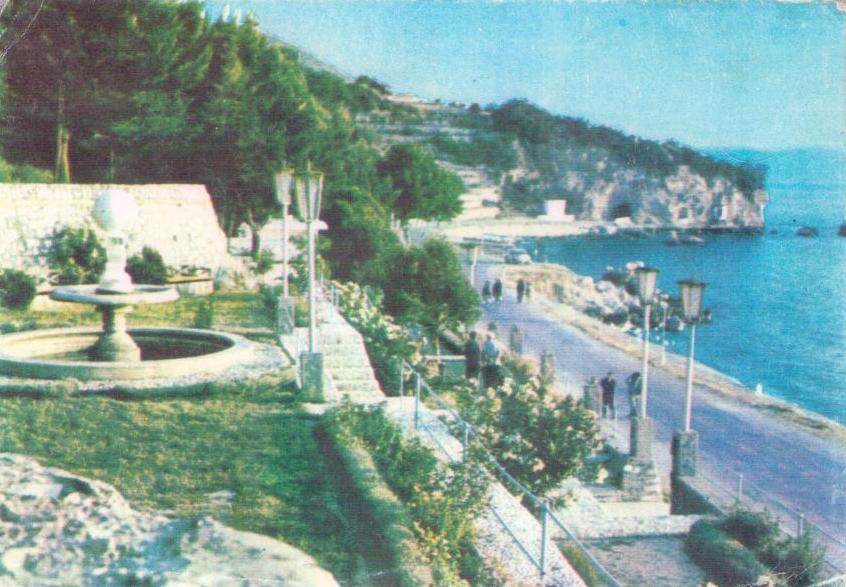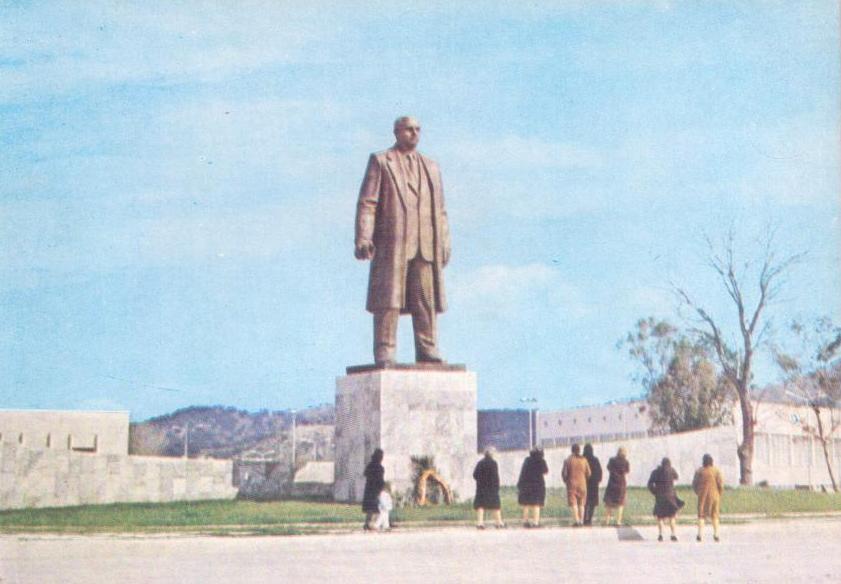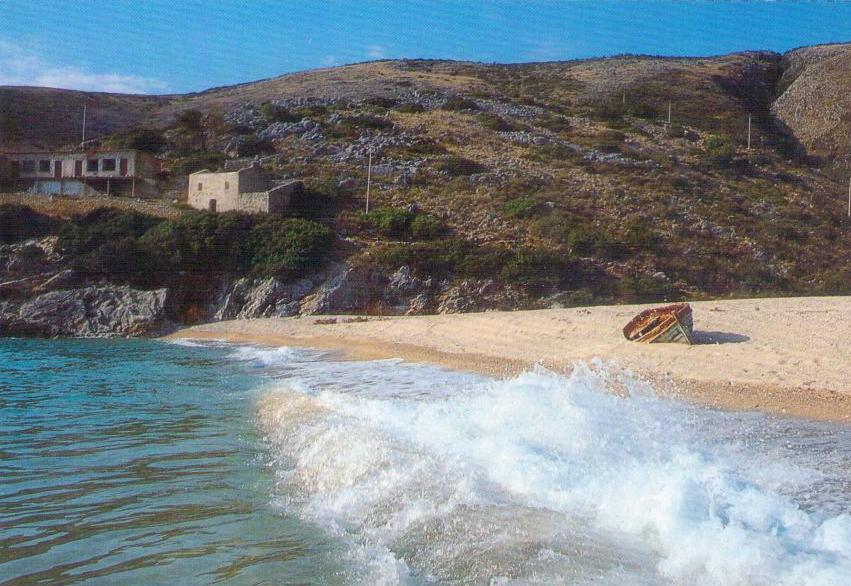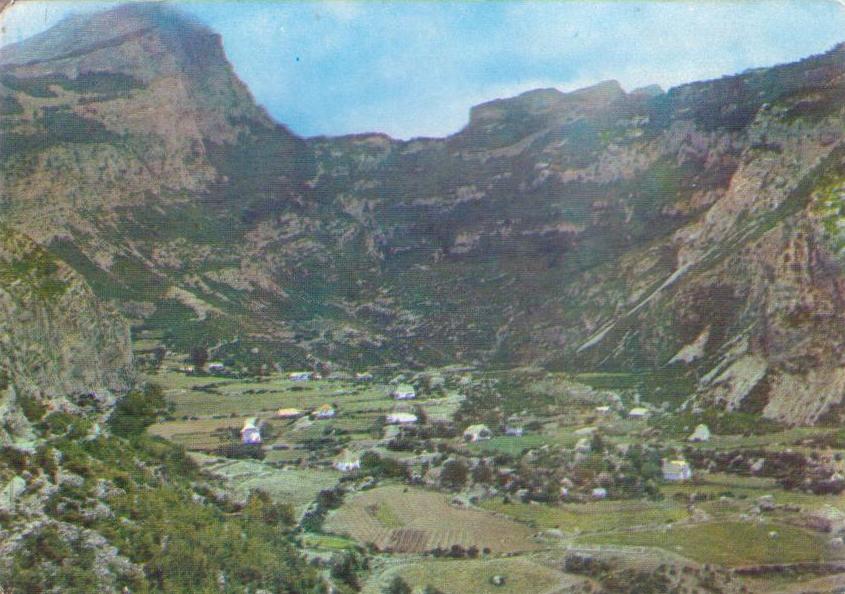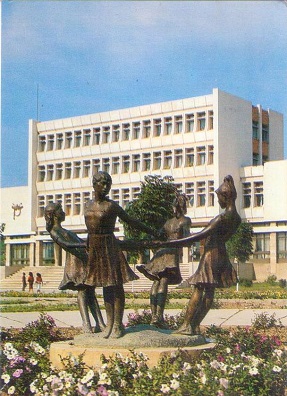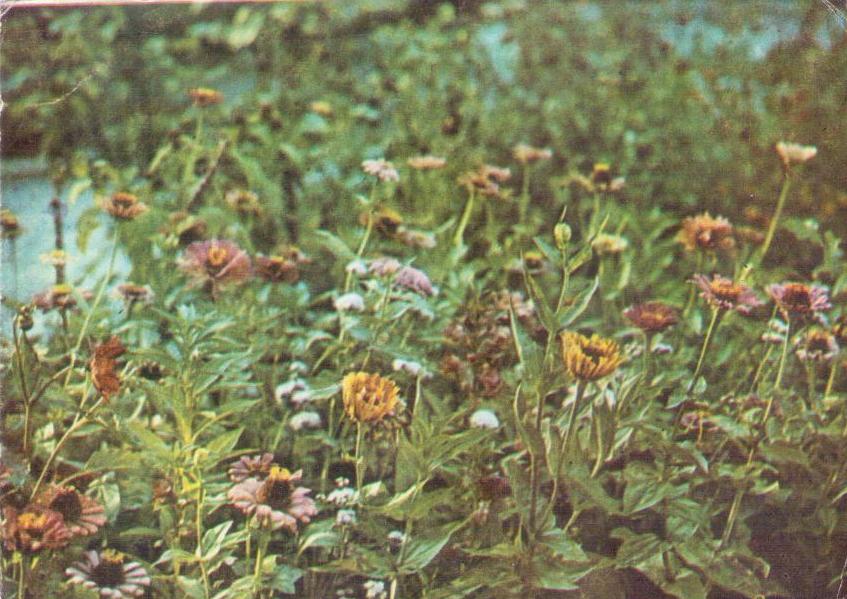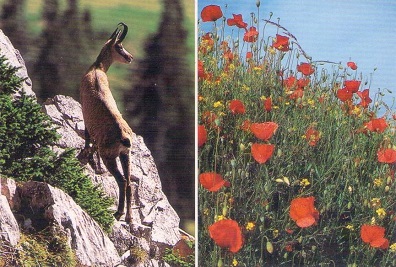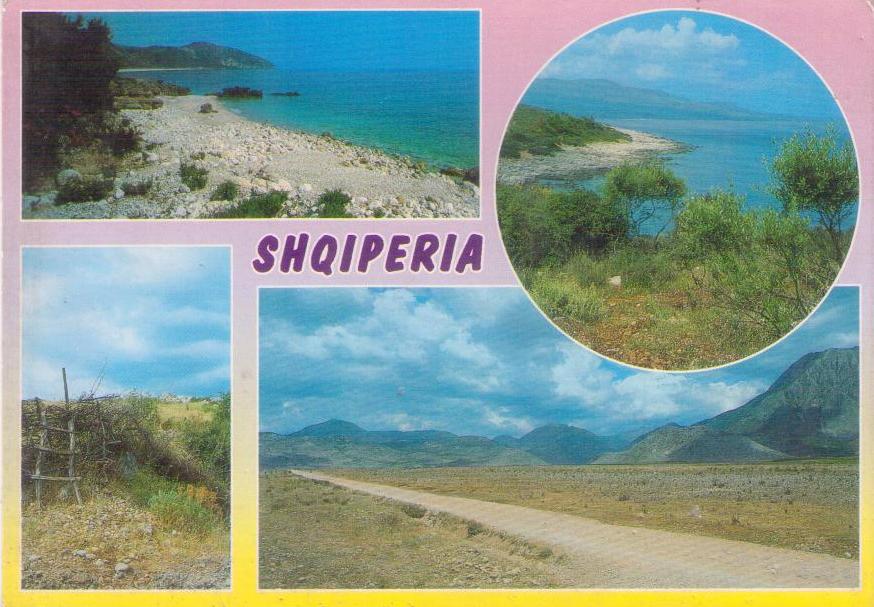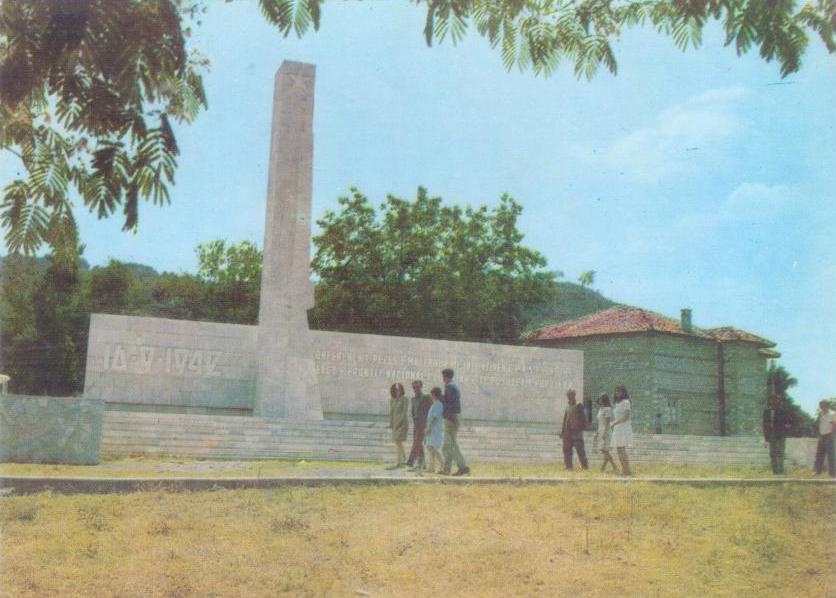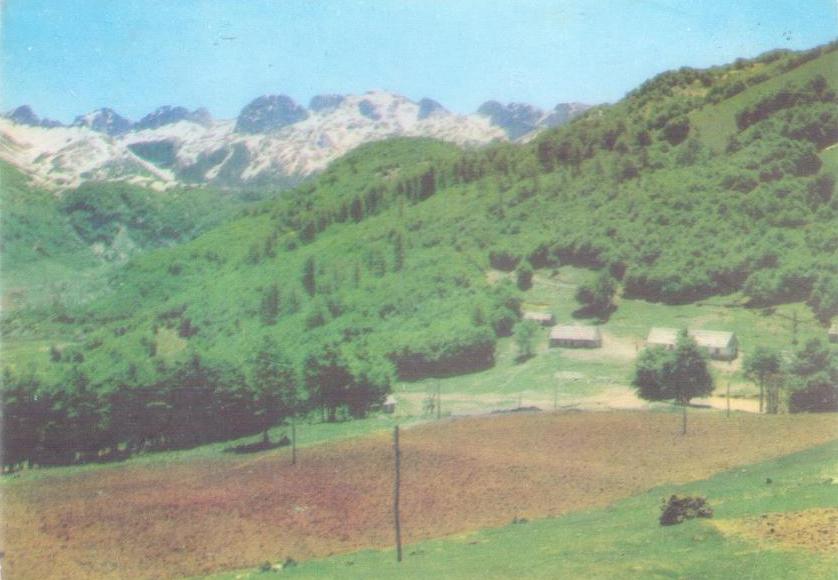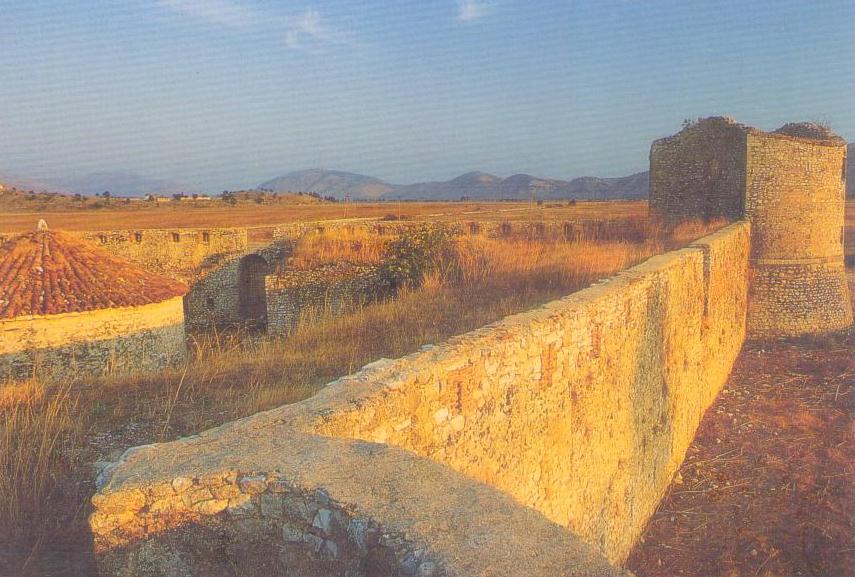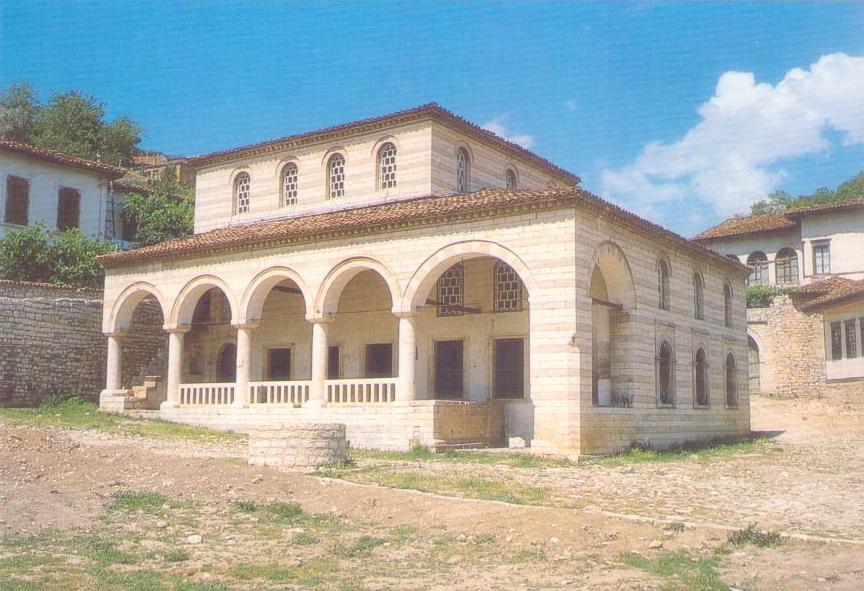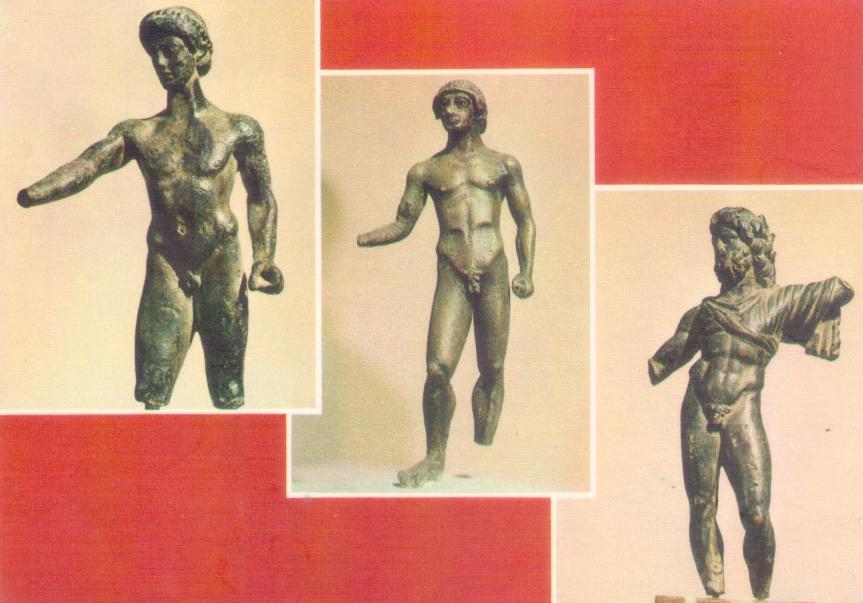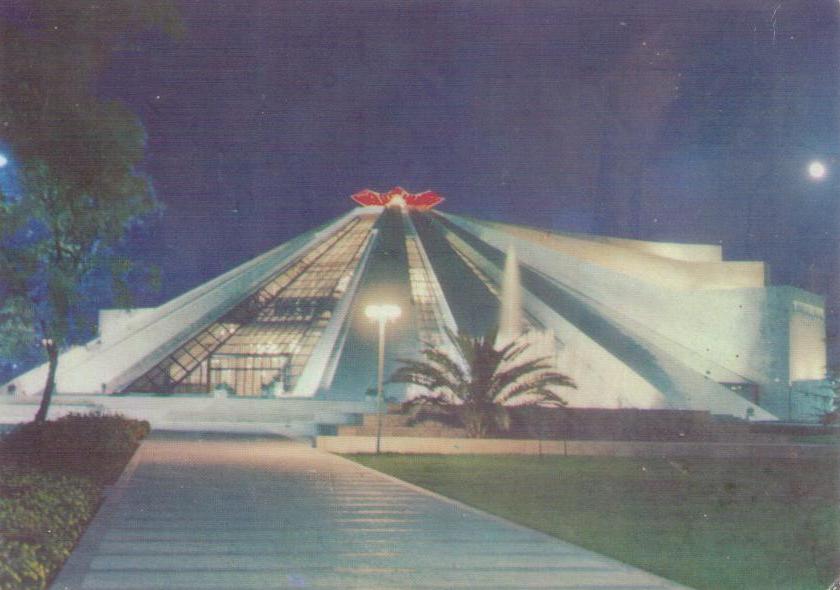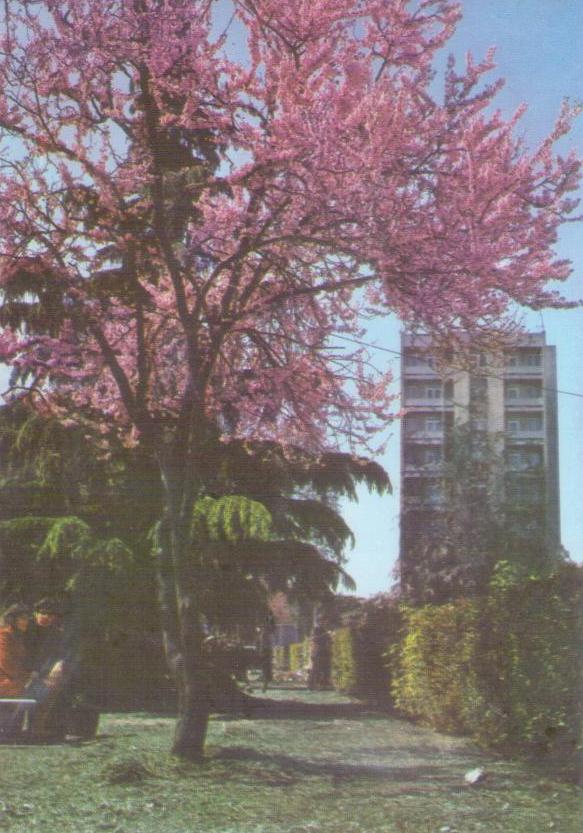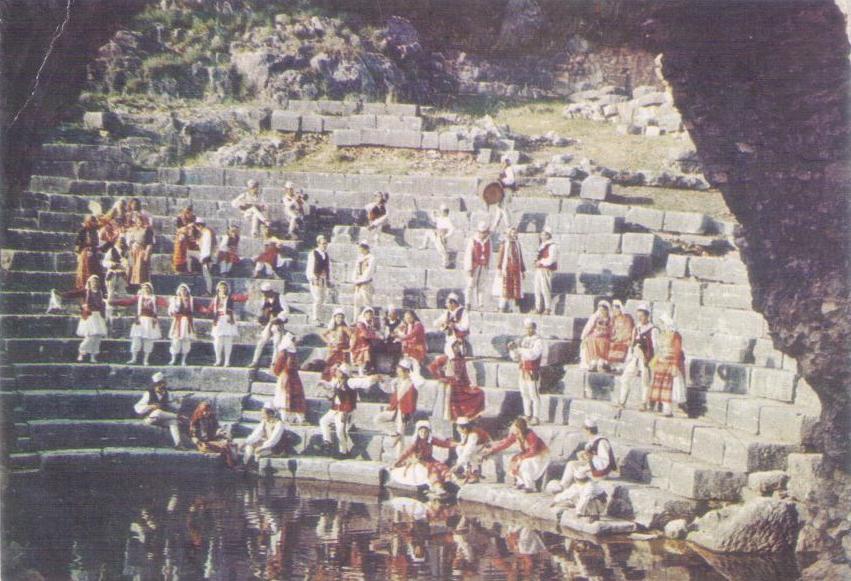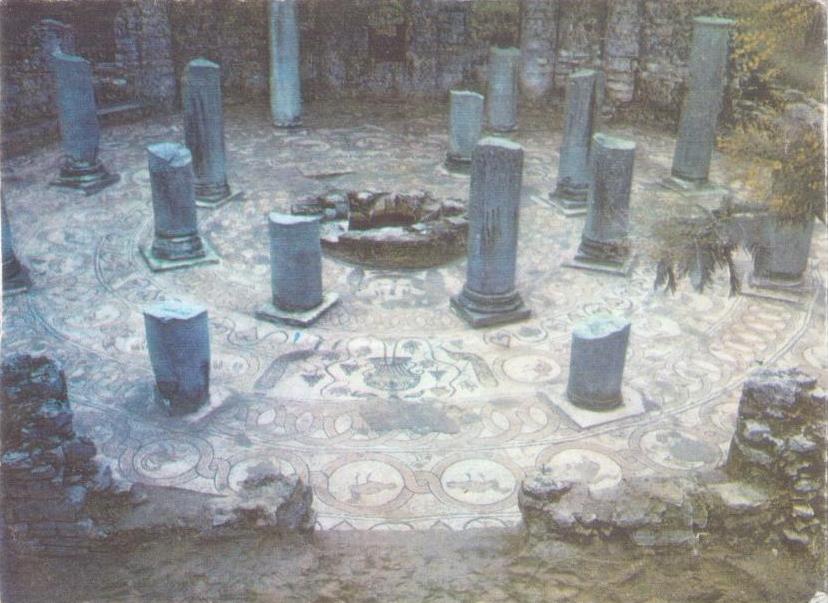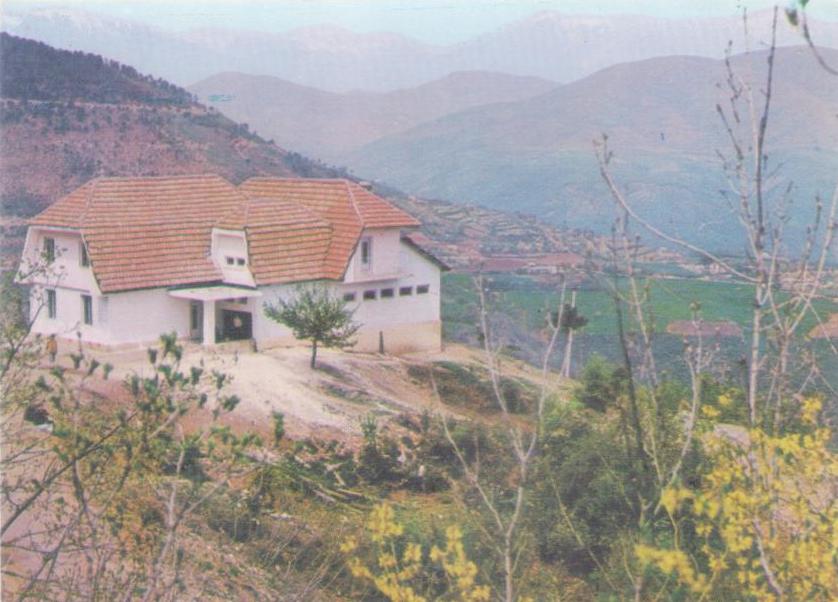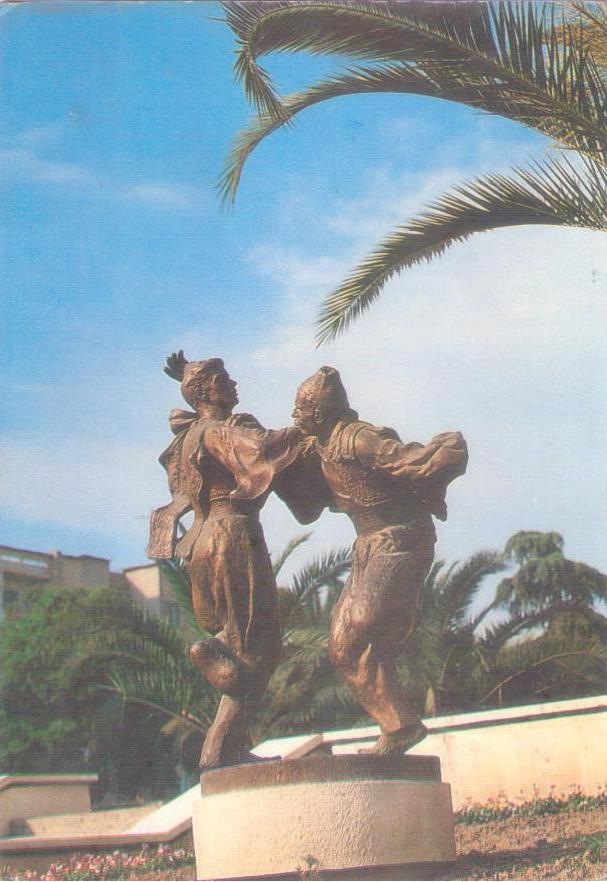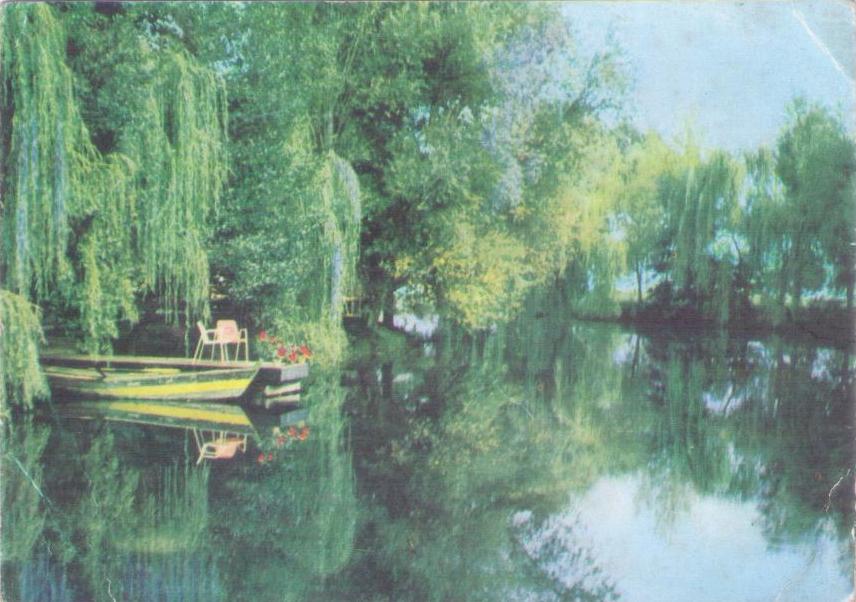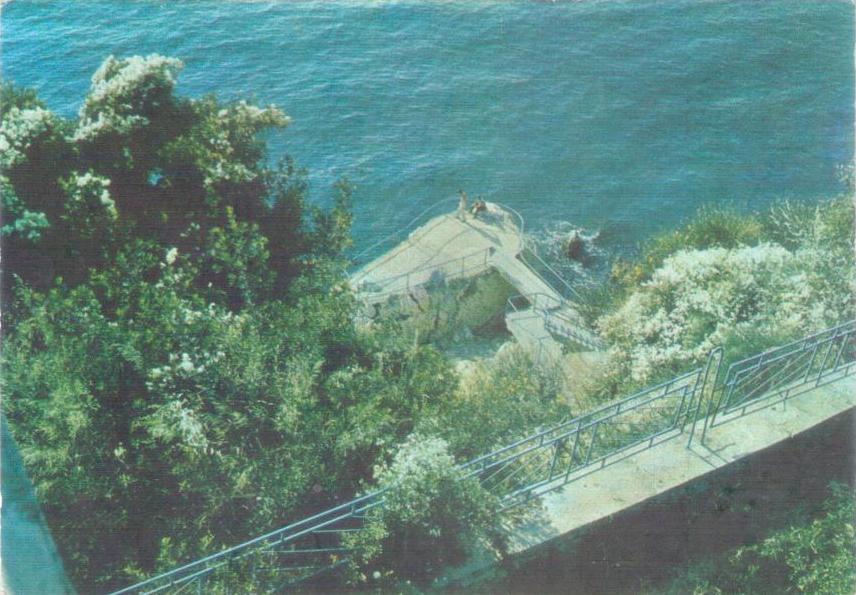-
Shkodra, Fortress, multiple views
Older, unused card 17189. From the main road into the city, this doesn’t seem so big, but that perspective changes quickly. And what an astonishing history the fort has. Grade: 1
-
The River Shkumbin
The Shkumbin, also commonly Shkembi, is a river in Southern and Southeastern Europe. The river originates in the eastern Valamara Mountains between Maja e Valamarës and Gur i Topit in Southeastern Albania. This is an old, unused postcard, significant aging that only adds to the card’s atmosphere. We guess you need to imagine yourselves there at the time. Grade: 3
-
Tepelena, Fortress of Ali Pascia
Older, unused card 17182 with smudging on the reverse. The front is fine. Grade: 3
-
Thethi
This unused, heavily aged card dates from 1980, in some people’s view a difficult time for the country but the end was in sight. You might have seen our earlier comments about Theth (alternate spelling). The scene in this card is fundamentally unchanged though if you saw it now you might start thinking too much about it. It’s a more expensive card because, frankly, these are hard to find. And getting there is something of a slog. Grade: 3
-
View of the centre of Tirana
An older Tirana postcard, unused, and distinctive in its design. (SHB is Shtepia Boyuese, the publisher.) Grade: 1
-
Tirana, Founding house for CPA
Our header for this unused 1988 card basically says what the English part of the card’s caption shows. To fill that out, we went to Wikipedia: “The Party of Labour of Albania (PLA) (Albanian: Partia e Punës e Shqipërisë, PPSH), sometimes referred to as the Albanian Workers’ Party (AWP), was the vanguard party of Albania during the communist period (1945–1991) as well as the only legal political party. It was founded on November 8, 1941 as the Communist Party of Albania (Albanian: Partia Komuniste e Shqipërisë, PKSH), but its name was changed in 1948. In 1991, the party was succeeded by the Socialist Party of Albania. For most of its existence, the party was dominated by its First Secretary, Enver Hoxha, who was also the de facto leader of Albania.” The card is aging appropriately. Grade: 1
-
Tirana, Museum of National History, Hall of the National Renaissance – Corner of the Frasheri Brothers
Our header is the English part of the bilingual caption on this unused 1983 card. If you don’t know who the Frasheri brothers were–and we didn’t–we show you a Wikipedia entry here. Each brother has his own entry. “Sami Frashëri was an Ottoman Albanian writer, philosopher, playwright and a prominent figure of the Rilindja Kombëtare, the National Renaissance movement of Albania, together with his two brothers Abdyl and Naim.” The card is showing its age but is otherwise unmarked. Grade: 2
-
View of Tirana (Sahati)
From Wikipedia again, “The Clock Tower of Tirana (Albanian: Kulla e Sahatit), was built in 1822 in Tirana a by Etëhem Bey Mollaj, a Bejtexhinj poet who also finished the Et’hem Bey Mosque next to the clock tower. It is a monument of culture of first category, approved on 24 May 1948. The stairs have 90 steps that go in a spiral fashion. It is 35 metres (115 ft) tall and was the tallest building in the city at the time. Since the restoration of 2016, 9,833 visitors were counted, who have visited the tower.” As this Wikipedia entry was edited in 2018, so few? The older card is unused, with light handling on the reverse. Grade: 1
-
Tirana, “Enver Hoxha” Museum
Starting a short series of cards from what is now called the “Pyramid of Tirana,” best described (we think) by this Wikipedia entry: “On 14 October 1988, the structure opened as the Enver Hoxha Museum, originally serving as a museum about the legacy of Enver Hoxha, the long-time leader of Communist Albania, who had died three years earlier. The structure was co-designed by Hoxha’s daughter Pranvera Hoxha, an architect, and her husband Klement Kolaneci, along with Pirro Vaso and Vladimir Bregu. When built, the Pyramid was said to be the most expensive individual structure ever constructed in Albania. The Pyramid has sometimes been sardonically called the “Enver Hoxha Mausoleum”, although this was never its intended use or official appellation.” There’s more, and right now the Pyramid is under some sort of renovation. As for this card, unused and issued in 1989, significant handling but good-of-kind. Grade: 2
-
Tirana, “Enver Hoxha” Museum – portrait
Continuing a short series of postcards from the facility we described in our entry 20501243. Unused 1989 card, significantly smudged on the reverse but this doesn’t damage any of the writing or captioning. Grade: 3
-
Tirana, “Enver Hoxha” Museum, grand hall
The unused 1989 card is in relatively poor condition, with a lot of smudging and crinkling, but this continues a short series of postcards from the facility we described in our entry 20501243. The printed writing and captioning are fully readable. Grade: 3-
-
Tirana, “Enver Hoxha” Museum, tubes
This continues a short series of postcards from the facility we described in our entry 20501243. Unused 1989 card, some aging. Grade: 1
-
Tirana, “Enver Hoxha” Museum – display cases
This continues a short series of postcards from the facility we described in our entry 20501243. Unused 1989 card, mild aging. Grade: 1
-
Tirana, Muzeu “Enver Hoxha”, multiple views
Ending our series of cards from this distinctive Pyramid museum with an unused oversized card (5-1/2″x 8-1/2″) dated 1988. Minor bumping on the edges, otherwise clean. Grade: 2
-
Tirana, View of Petrela
It just depends on the postcard whether this castle is “claimed” by Tirana or not. In this case, yes. Unused 1984 card, very heavily handled over time, but look what it’s been through. If postcards could talk … more than they already do. Grade: 3
-
Tirana, The castle of Petrela
Unused 1988 card from Shtepia Botuese. Aging appropriately. Grade: 2
-
Tirana, urban view
Tirana is evolving quickly. Streets like this are going fast. We have a few unused cards from 1992, all slightly aging, and will choose the best one for you. Grades: 1
-
Vlore, Independence Monument
The Monument of Independence is a monument in Vlorë, dedicated to the Albanian Declaration of Independence and worked by Albanian sculptors, Muntaz Dhrami and Kristaq Rama. It is found in the Flag’s Plaza, near the building where the first Albanian government worked in 1913. As for the postcard, unused, handled a lot over the years, and captioned in French only. Grade: 2
-
Vlorë, Aerial view
Unused, old but undated card whose Albanian-only caption (“Shtepia e pushimit te punetoreve”) means “Holiday home for workers” . Workers’ paradise, indeed. Significant abrasion on a small area of lower left reverse corner. Grade: 4
-
Vlorë, View of Uji i Ftohte
Compare the view on this unused card from 1985, with now. (OK, OK, that’s a purely imaginary request!)Don’t think it was that long ago? Have a look at Vlore now. Aging but otherwise unmarked. Grade: 2
-
Vlorë, Monument to Hysni Kapo
No, we did not know who this gentleman was, so we looked it up. Hysni Kapo was an Albanian military commander and leading member of the Party of Labour of Albania. A member of the Communist Youth group, Kapo was first distinguished as an artillery commander in the Battle of Drashovica. He was born in Vlorë District, thus the monument. His relationship with Enver Hoxha was complicated. Unused but highly aged card dated 1982 and captioned in Albanian, English, and French. Grade: 3
-
Vuno, Beach
Vuno, near Vlore, is part of the Albanian Riviera. These hills have homes now. In 1720, the villages of Himara, Palasa, Ilias, Vuno, Pilur and Qeparo refused to submit to the Pasha of Delvina. (Don’t worry, this will not be on the quiz.) It’s an older, unused RTS postcard. Grade: 1
-
View of Northern Albania
That is the English part of the bilingual (with Albanian) caption on this unused card from 1989. We would welcome your opinion as to which town this is. Two cards are available. One is normally aged (Grade: 1, $5) and the other is really quite heavily messed up on the reverse with handling and abrasions, not with handwriting, and original printing is all there (Grade: 4, $2).
-
Flower Dance – Sculptor: Zana Varvarica
Our header here is the English part of the bilingual caption. The Albanian portion is no more instructive. We suppose this is in Tirana but the card doesn’t say, and when you enter any of this into Google, well … try that for yourself. Older, unused card. Grade: 1
-
Wildflowers
There is no caption on this old, unused card, which however is attributed to Shtepia Botuese, as most older Albanian postcards are. Albania is awash in flowers, from the most brilliant red poppies to lavender to everything in-between. The card, while authentic, doesn’t do the flowers justice. Grade: 2
-
Fauna – Flora
That’s as far as the caption goes, on this older, unused RTS card. Those flowers look like poppies to us. Grade: 1
-
Shqiperia (Albania), multiple views
No caption, apart from country name in Albanian and English, on this aging, unused RTS card 16611. Grade: 2
-
Tirana, Memorial to the Conference of Peza
The Conference of Peza was held in Peze, a village near Tirana, on September 16, 1942. The conference’s goal and objective was to organize different political forces in a common war against the fascist Italy. And what ramifications this had … two unused 1987 cards are available, normally aged. Grades: 1 -
Kelmend, view of Lepush
Unused card from 1984. The reverse has some stains and abrasions in the address area, but the bilingual caption and other writing is clear. Grade: 3
-
Butrinti, Fortress of Ali Pascia Tepelene
Unused RTS card, with a minor stain along the bottom reverse edge. Grade: 2
-
Berati, Mosque
Unused RTS card. Grade: 1
-
Tirana, Musee Archeologique Ethnographique, bronze figurines
We are not certain if this is now the National Museum of History, but the unnumbered Albturist card is older and unused. Grade: 1
-
Tirana, Enver Hoxha Museum
This 1989 unused card shows Tirana’s Pyramid as it was while it was rushed into service as the Hoxha Museum shortly after he died. That didn’t last long. If you search, you can see all the incarnations of the Pyramid since then. As we type this, it just looks derelict and is under renovation. We asked what the plans were for it, and were met with a shrug. Grade: 1
-
View of Shkodra
Unused card from 1988. Outside of Albania, Shkodra may not be well-known but it has an amazingly long and colourful history. The town as it is now is a place where our immediate reaction was: we wouldn’t mind staying awhile, and exploring. Grade: 1
-
Kostume kombetare
Kombetare = national, in Albanian. We guess, but can’t guarantee, this photo was taken at Butrint. What we can guarantee is that this is an unused postcard from 1974, with normal aging. Grade: 1
-
Baptisteri i Butrintit
Old, unused card. Normal aging. Grade: 1
-
Tourist spot in the Tropoja District
Unused, mildly aging 1988 card. Grade: 1
-
Myzeqare dance (Maksim Bushi)
Maksim Bushi is a well-known sculptor/artist about whom surprisingly little is online in English. If you can read Albanian, you’re good to go. The name of this particular work — in Albanian — is Valle Myzeqare. Unused card with smudging on the reverse. Grade: 3
-
Pogradec, View of Driloni
A card from 1983, written (but not mailed) with a 1988 New Year’s greeting. Grade: 4
-
Vlore, Uji ftohte
Now very much a resort area, though you wouldn’t guess it from this older, unused postcard. Grade: 1

